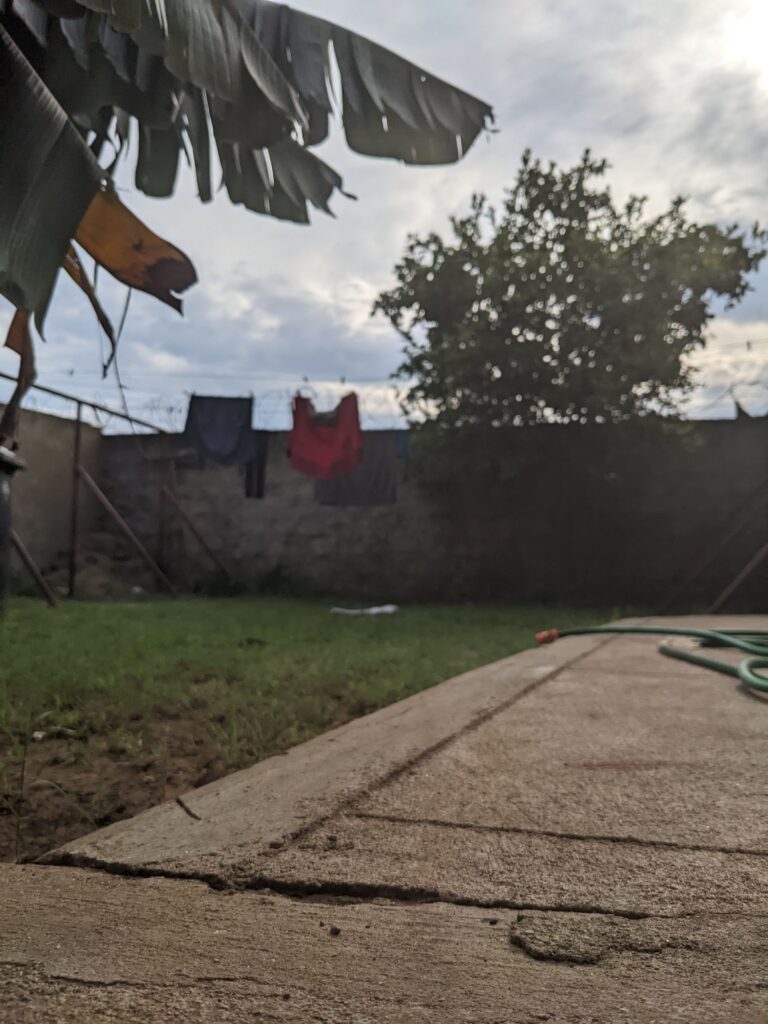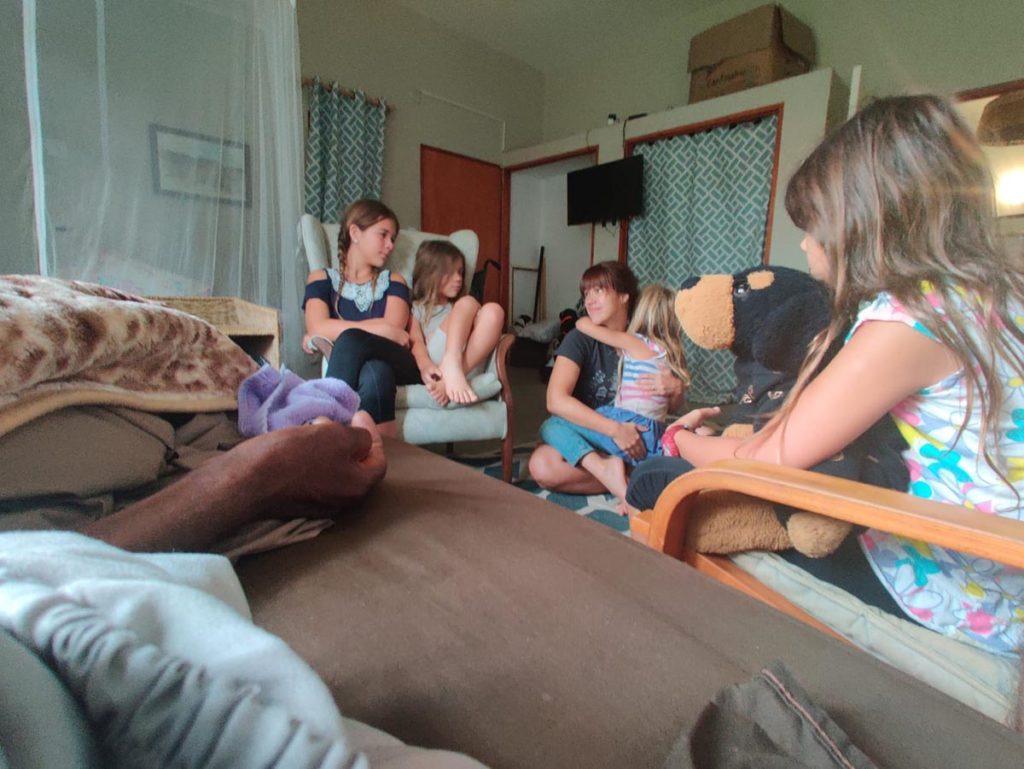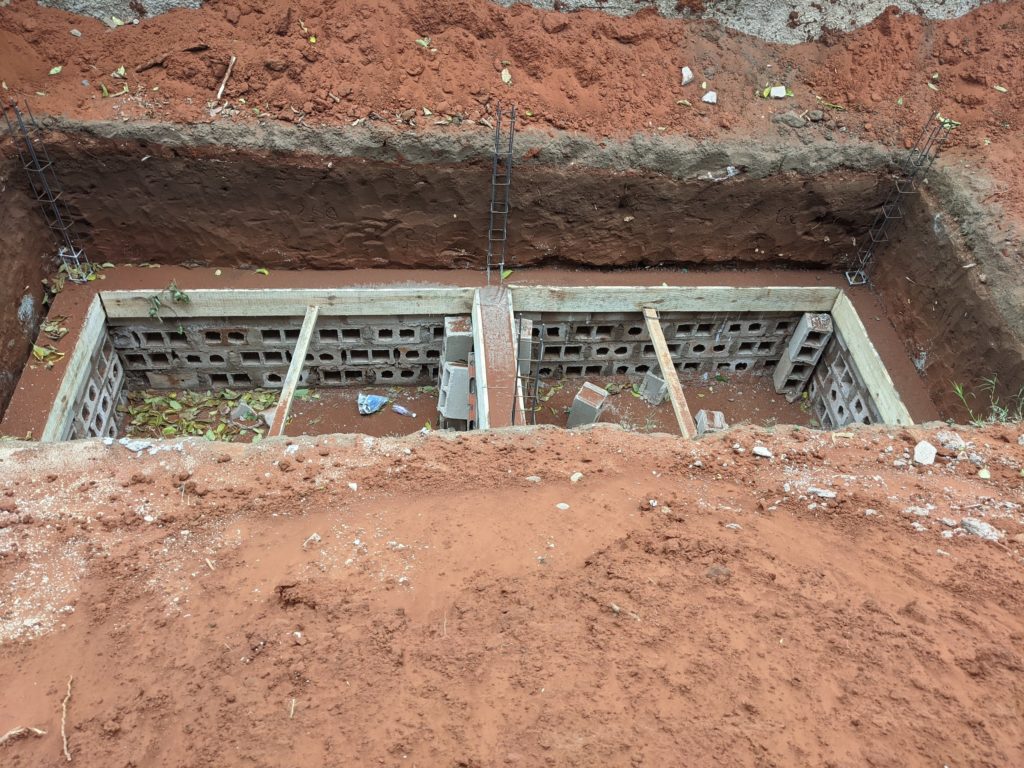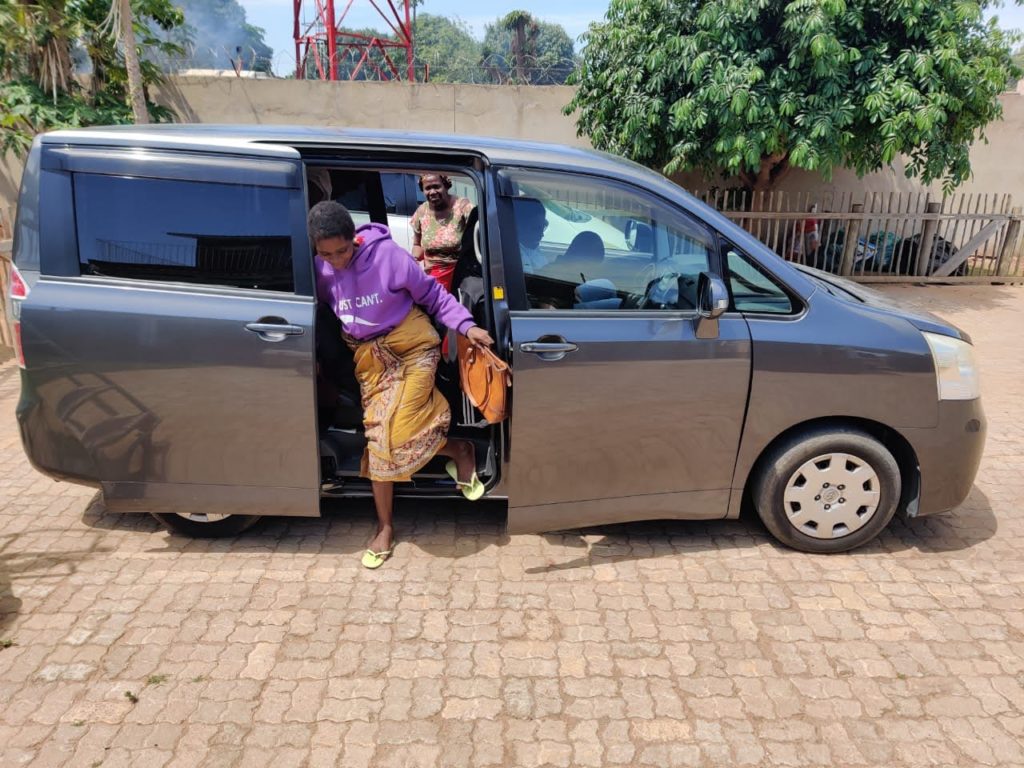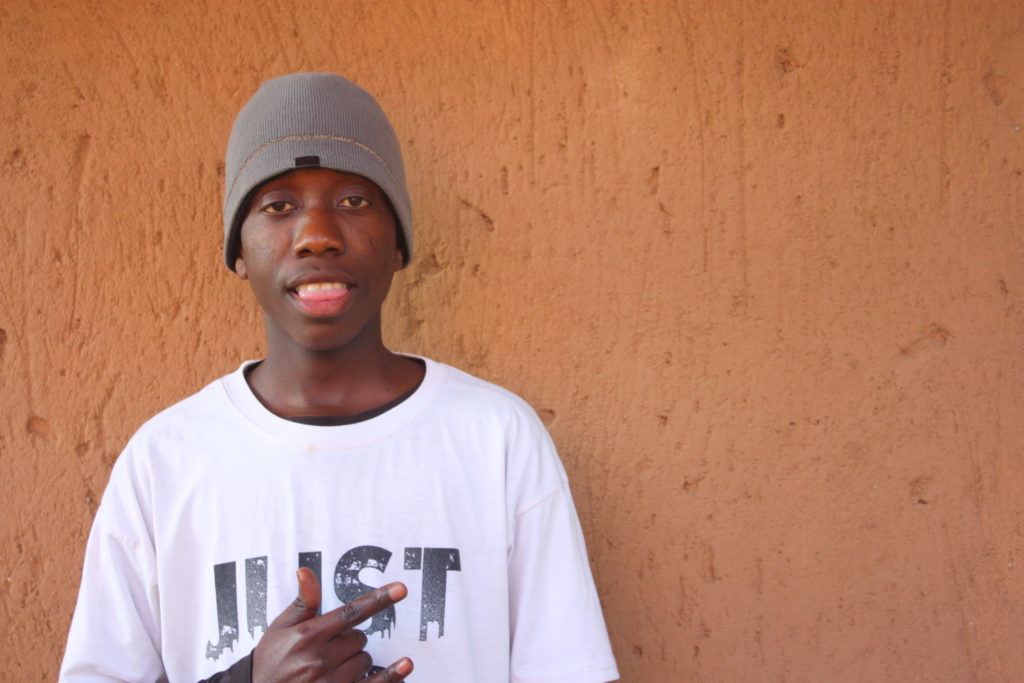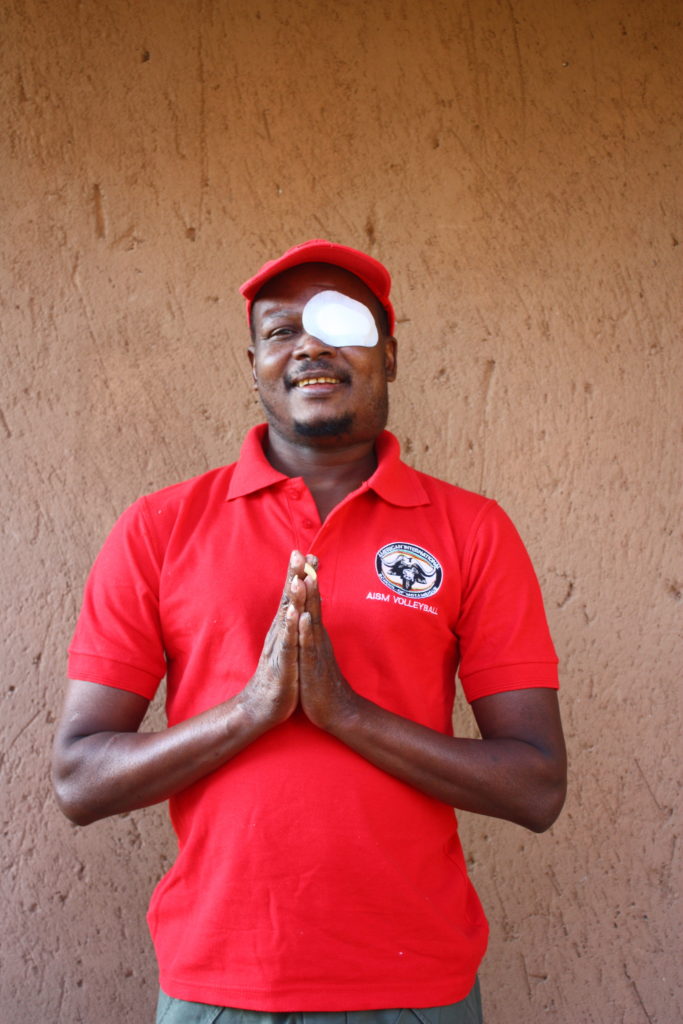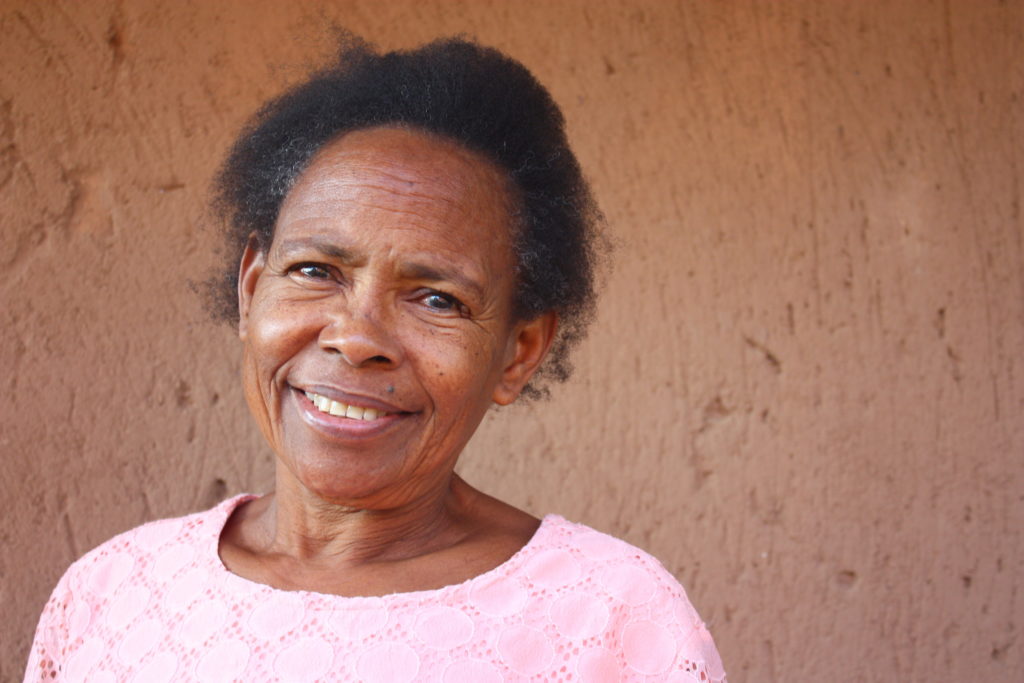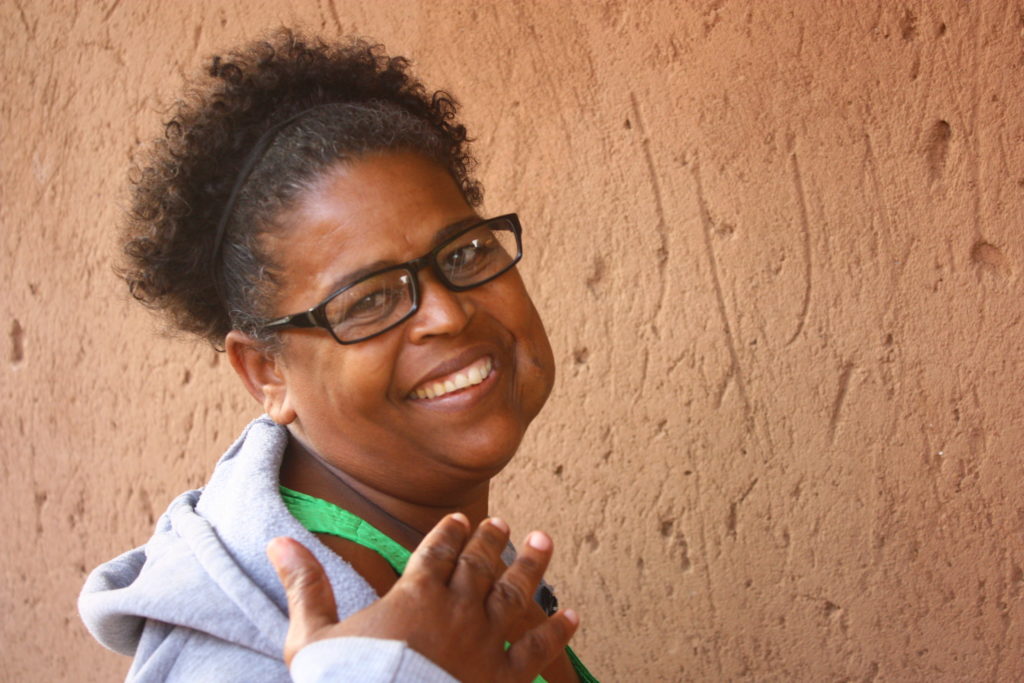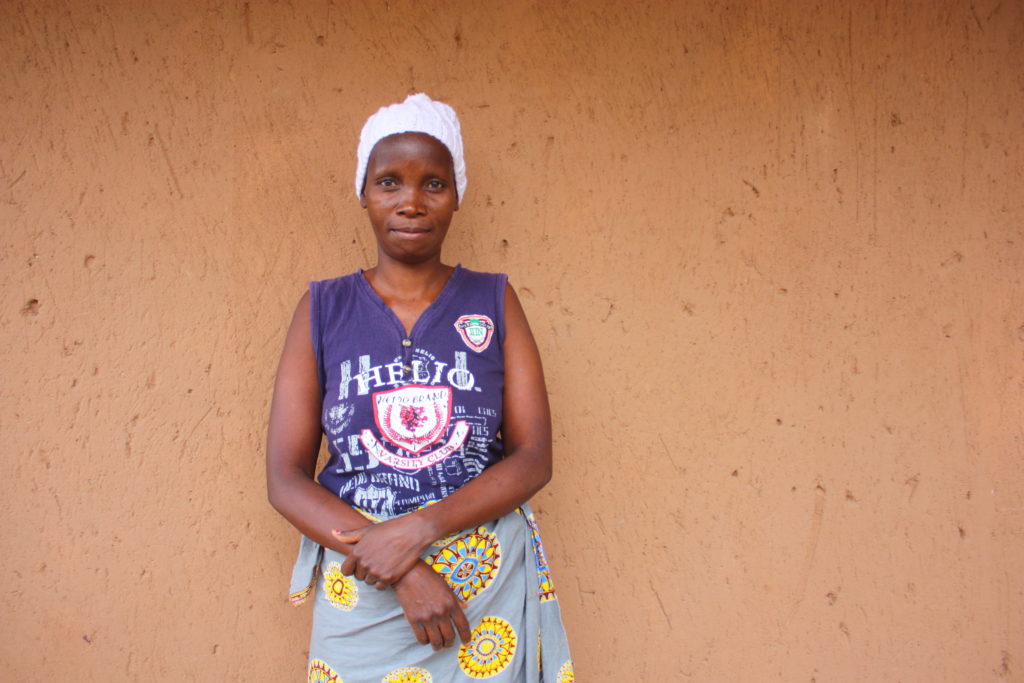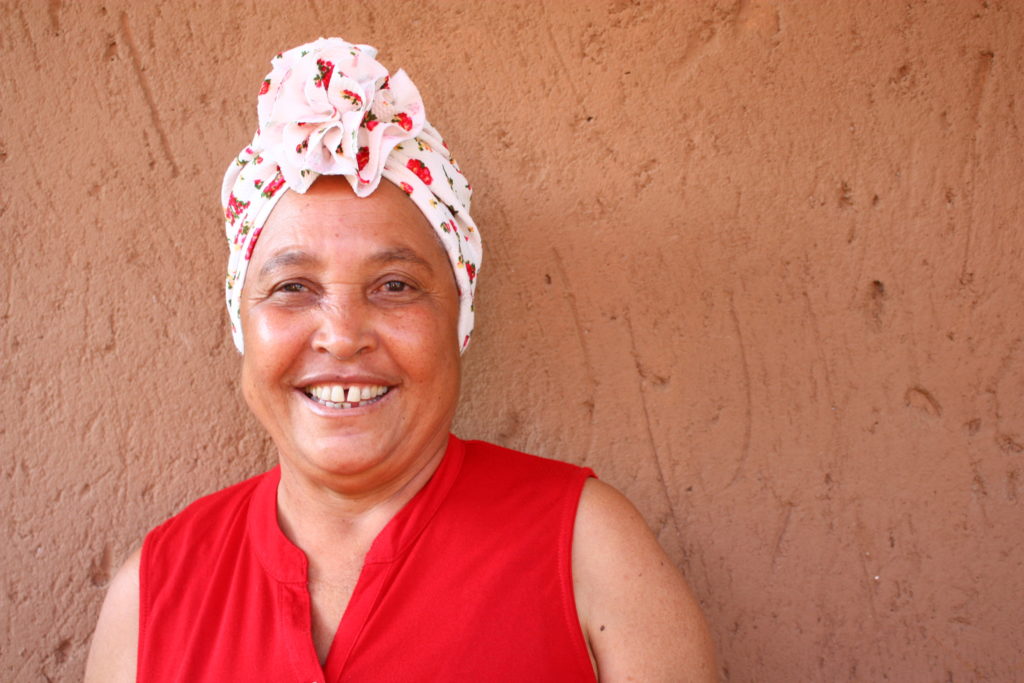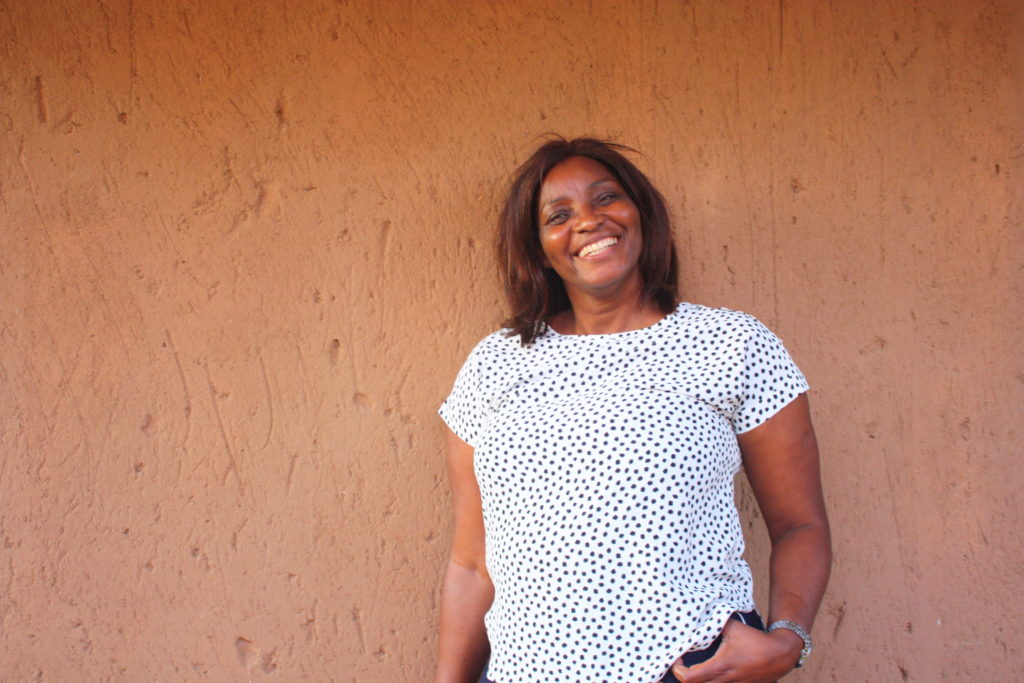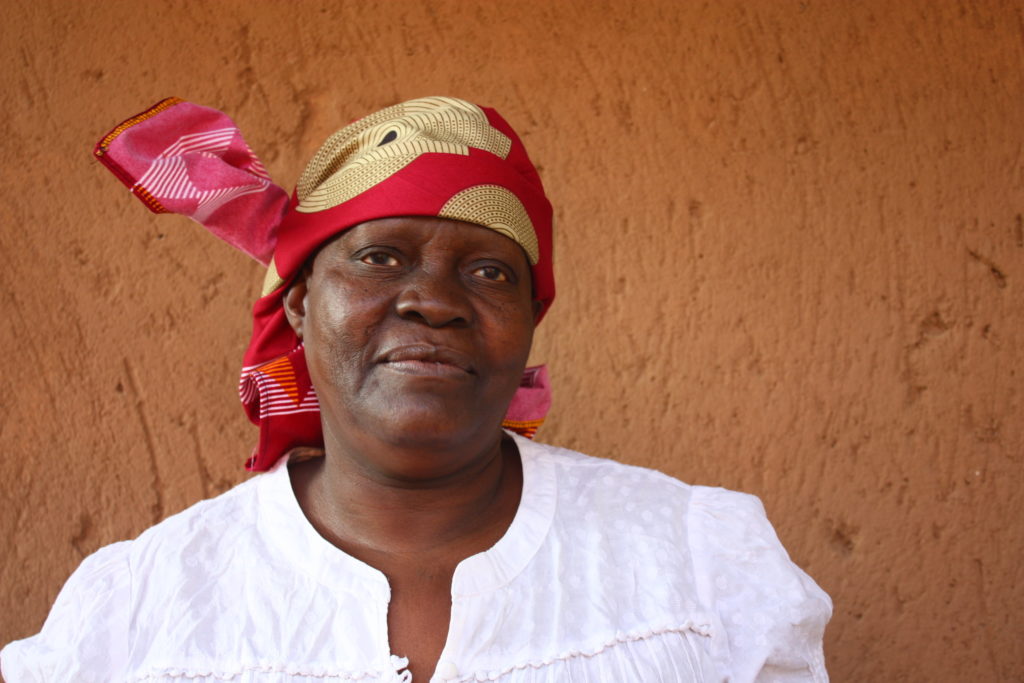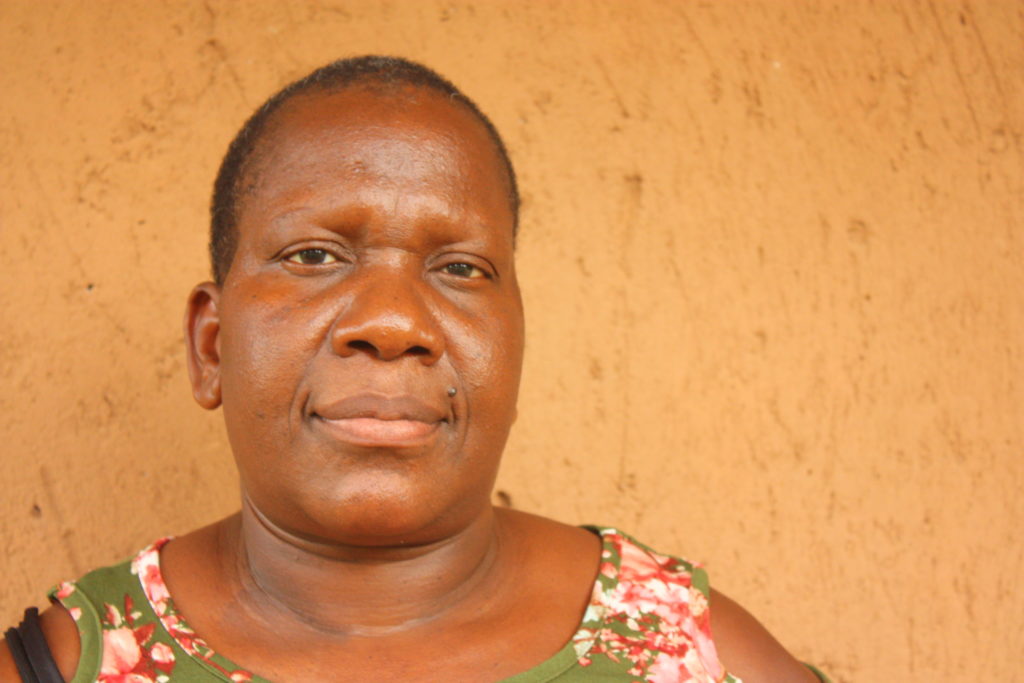A Jon Post
A song has been resting on a bed in my house for the last four weeks. It rests in the bed near to where a young woman lay panting in pain four weeks ago. Reaching out to me, reaching out to Layne, murmuring to her brother in Matswa.
Matswa, the language Flora sung with the mother who raised and spoiled her, the mother 500 kilometers away and unable to hold her dying daughter while Flora wrestled through the pain and the meaning of dying young.
A decade in the death trade has given me some small familiarity with the rhythms and notes of dying and grief, crafting songs woven from the threads of suffering. In my case, those threads are usually passed through and tied to the eye of the needle of cancer, but really, that needle is not so important a part in the tapestry grief and dying weave from their songs. Like the music of many composers historic and current, most people (and in this, I include myself) do not recognize nor even enjoy the songs grief and dying compose upon first listen. For most people, it is a strange song, an arrhythmic beat, punctuated by cries and gasps, remembered for its long periods of silence interspersed with wails and howls or soft moaning then culminating in a crescendo of turbulence, noise, confusion, and emotion. This is the introduction most of us have to the songs of grief and dying and I do not blame anyone for their distaste for them. This distaste is most often borne for many long years after first hearing the duet of grief and dying sung in the throes of cancer, heart disease, SIDS, after a car accident, or finding a note left next to an empty bottle of pills.
The first notes I heard of that duet for Flora was when I was inviting her hospital roommate to come to Casa Ahava.
Selma was from distant Quelimane, a town in Northern Mozambique more than 1500 kilometers from where she sat in her hospital bed. Selma had done chemotherapy and radiation therapy last year but the dark tendrils of her cervical cancer had not been killed by those poisons so she was back in our hospital, depending on desperate doctors to offer her a desperate attempt to control the growing disease. As I invited Selma to my home, Flora wondered aloud (clearly for my benefit) “who will care for me when Selma isn’t in the bed next to me?”
Ah, yes, there they are. The African drum beats of grief and dying, playing softly in the background of this young girl’s request to follow her friend to my home.
The first thing to notice about Flora was her smile. It lit her face and the room and she made eye contact through intense eyes (exaggerated by her emaciated body). The second thing to notice was her swollen abdomen. Flora’s cervical cancer had grown at a terrifying rate in her body and bullied its way through organs, intestine, and bone, displaying itself prominently in a macabre and mocking imitation of the joys of a young woman in late pregnancy by forcing Flora to cradle her belly and support it whenever she shifted or walked from bed to bathroom.
It took little time to coordinate with her oncologist to bring Flora AND Selma to my home the following day. Flora was from the province of Inhambane, closer than Selma but still inaccessibly far in Flora’s condition. Flora’s plan of care was simple; a couple rounds of chemo to see if the mass in her abdomen would reduce at all but, other than that, try to control her pain and give her as much time as possible. Despite that plan having been explained clearly to her by her oncologist, in a quiet setting just she and I, I asked her what she understood to be happening both in her body and in her treatment. She expressed abundant hope, even expectation, that she would be cured, that her trouble walking would go away, that she would return to her mother and her younger sister; strong, sassy, and ready to prove how wrong everyone else was that this was a serious problem.
There it is again, the music of grief and dying. I know this verse well. This lament for the way things may have been, the loss of potential, the loss of future project, the loss of reputation and identity… So often upbeat, so often belying the story behind the music, all true, all good, all beautiful.
Flora’s cancer was not kind.
I suppose cancer rarely is but it seemed to hold some special malice for Flora. Malignancy wrapped its icy fingers around her digestive system, her nervous system, and her spine. Opiates passing through the bloodstream can sooth the pain of some, but not all of those systems. Bones are particularly resilient to any attempts to palliate their pain. Agonizing hours, days, and weeks passed for Flora at Casa Ahava. I am convinced that Layne was every combination of medical and miracle for Flora because what shoreline could be found in Flora’s sea of pain was guided by the lighthouse of Layne’s presence, wisdom, and medication dispensation. But storms on that sea make the waves of bone pain crash in a different direction as those of nerve pain which crash in an altogether different direction as those of muscle pain. In the turbulence of that storm, morphine can only offer succor in one or two of those waves but not all. Flora was very familiar with storms and with pain.
During one of the calms in the storm, I sat with Flora and her smile and asked her again, “What do you think is happening with your illness and your treatment?” Again she assured me she was going to get better and that, in fact, she was already feeling better than when she arrived at my house. But this time, she followed those assurances up with a question of her own, “What do you think, Jon?”
There they are; the uncertain notes, the lilting, questioning notes, the music of grief and dying dancing this way and that, as if unsure if melody or harmony is the best way forward.
In that moment, I was faced with a decision of faithfulness. To whom must I be faithful in the time when someone asks what I can see on the horizon of illness? Am I faithful to her family, which asked that I spare honesty and openness and use words which, while not “untrue” per se, at least communicate a hope that I do not have? Am I faithful to my teammates who tell me I am in danger of glorifying suffering, of becoming so enamored with it that I may do little or nothing to alleviate it? Am I faithful to the person in front of me who has a chance, a chance, at hearing the music of grief and dying and joining in harmony?
In that moment I chose.
I chose Flora.
“I think you are dying, Flora.”
A sad smile crossed her face and she nodded in acknowledgement and what I took to be acceptance. But the following days put the lie to my interpretation of her response.
Like a branding iron on her hip, her thigh, her back, the pain ripped through Flora’s already weak body in fits and bursts and she railed against it and against the music I asked her to listen to.
“I don’t accept it!” She cried and pounded her fist against the wall in agony, “I DON’T ACCEPT IT!” rang through the corridors of Casa Ahava, again and again. She hated the pain, she hated the cancer, and she hated my words:
“I think you are dying, Flora.”
Now dying, grief and Flora sing back and forth in a tumultuous fugue; contrapuntal, violent, one part taking the melody of the other, imitating, repeating… devastating. Terrible and beautiful in its tone, this section of music can rarely be ignored or forgotten.
Days passed like this. Conflict and emotion ran high among all of us who cared for Flora. Was I right to say what I did? Was the only accomplishment of my pronouncement to increase the pain of a young girl already nearly indistinguishable from the pain that defined her existence?
Another chemo treatment. Another week. More pain. More titration of morphine, amitriptyline, gabapentin, bisacodyl, and other chemical compounds building piers into the sea of pain and symptoms to break the fury of the tide pushing against the shores of Flora’s body.
And somehow Flora found days to smile. Days to laugh. Days to help in the kitchen… Layne carried her through much of it.
Another calm day came. Again, I sat in her room listening to the music.
Reader, if you are ever unsure what to say or do in the room with a person like that, pause and listen for the music. Maybe you won’t hear it. Maybe it will just feel awkward for you and the other person as you sit in the silence, between the beats of the music. Maybe.
“What is happening, Flora?”
“I don’t know, Jon.”
“Tell me about home, Flora. What is your mother doing these days?”
“She is preparing our family farm. Tilling, planting, cultivating, tending, and sustaining. But she is the only one who does all the work and then our whole extended family comes and eats from her farm. She works her fingers to the bone and eats nothing from the produce that comes from the soil she has prepared. Everyone else eats but her. She is the most generous person I know.”
Generosity. Selflessness. Doing all the hard work just so others can be sustained. This is how Flora spoke of and conceived of her mother, of her hero. I was swallowed up in the love and admiration Flora had for her mother. Silence. Waiting.
There it is again.
“Do you think you could be as generous as your mother, Flora?” I asked.
“I don’t know, Jon.” Uncertainty in her voice.
“Sometimes, all the hard work is lain in front of only you. And if you do all that work, it is only others who will come behind you to be sustained by the fruit of your labor. One of my favorite stories, in fact, is that of a man who knew he was dying and told all his closest friends and family, ‘Take and eat, this is my body, broken for you.’ That man’s dying was given as sustenance to those he loved. That man did all the hard work of dying, and gave its fruit to those who came to his table looking for bread and wine. Maybe, your mother has the same generosity as that man. Maybe you can be generous too.”
The same wan smile. The same weariness in her face. But this time… her spirit took some small step… trying to dance to the music grief and dying were singing.
Now grief and dying sing like weeping violins, pouring lament into their duet while wringing beauty and ashes from every note, every measure, and every bar. For months they have prepared and now they introduce their final, terrible melody. They sing in a canon of descending chords, each note falling with the grace of a flower pedal, and the weight of a sledgehammer.
Flora’s body deteriorated rapidly. Quicker even than I expected. What vitality she eked from her muscles and bones took its toll on her and, no matter how urgent and insistent she was, her legs would not obey her heart.
Layne’s unhesitating presence was at her side the whole time. Into and out of bathrooms, showers, clothes, bedsheets, clean or soiled, Layne danced with Flora to the music we could all hear.
In a mysterious mix of body chemistry and spirit, dying people often see things the rest of us cannot. One afternoon, while Layne sat with Flora in the room of our house set aside for those for whom dying sings the loudest, Flora looked at the door and asked Layne, “Who are those people? Why do they have spoons and forks? What is it that they think is being served?”
What a strange vision to have three days before dying stops singing and grief carries the rest of the song.
Flora saw several people in the room with her and Layne, prepared for a meal, for sustenance.
Take and eat. This is my body, broken for you.
When I next sat alone with Flora listening to the music. She laughed and told me that this sickness was making her as dependent as a newborn child. Weeks or even days before, that confession would have been filled with a bubbling rage at the loss of her independence. This day, she laughed. This day, there was music in her voice. I asked her if maybe it was more like a grandmother who depends on the rest of us to carry her around than to an infant. She thought for a minute and then told me of her own grandmother who, when age took her ability to walk, would scoot around on her butt, taking hours to get halfway to her destination then just laugh when she didn’t make it. Flora took the better part of an hour telling me story after story of how she cared for her laughing, handicapped grandmother who died with a smile.
Four days Flora stayed in a bedroom in my home whose walls had already been soaked in dying and grieving. Four nights in a bed for a young girl learning to till the earth of her dying so that others could be fed.
Saturday came and, though in great pain, Flora wanted to bathe. In her determination not to be a nuisance, alone she shuffled her weary and pained body to the close bathroom. Layne found her on the way and, with a knowing smile, put her arms under and around her and helped her the last few steps into the shower seat where she helped her disrobe and wash her fragile body.
Rupture, screams, pain.
Friable inner tissues and compromised organs lost their tenuous hold on themselves and on each other and Flora’s cancer betrayed her one final time. Layne helped her to her bed. Layne stayed by her side and held her through all the wails, all the tears, all the heart-stopping fear, and all the unknowns.
The final crescendo. Here, dying’s solo is center stage, unrelenting and unashamed, where sanctity and sacrilege vie for prominence between moans and keening cries. This music has no obvious distinction between melody and harmony, it is darkness and light, paradox upon paradox, wholly figure and wholly ground, rooted in the temporal and expanded into the eternal. Dying’s solo is known around the world and across history and it is the cause of nearly every great and terrible event of each.
Layne held Flora to her bosom for hours on end. When Layne’s arms shook for the strain of it all, I picked Flora up one more time and laid her on a layer of cushions arranged so as not to place pressure where pain’s interminable grip held Flora in its fingers.
Matswa words stumbled out of Flora’s lips and she trembled under the strain of tilling the farm of her dying. I do not know if she saw those same spirits standing in the room, waiting to be served a meal or if she already saw eternity through the veil. Her strength, inherited from a laughing grandmother who scooted her broken body through the dirt and bushes of her ancestral land, lent Flora what was needed to pull her way through the field of her own dying and plough one last furrow into the soil.
Surrounded by Christ’s love and Layne’s arms, Flora died.
Now grief’s coda fills the emptiness of dying’s sudden silence. Stunned, solitary notes. In those first moments, grief is muted, mournful brass instruments, and a slow, steady djembe to mark the beating of hearts and the breathing of lungs. Now our own chorus of griefsong responds to the call of Flora’s deathsong and the call/answer is most commonly recognized in African traditional music where a single voice calls and the host responds. Our griefsong sings faithful witness to the beauty of Flora’s deathsong.
One week later we performed our grief rituals here at Casa Ahava. Our family, our partners, and our patients, all joined together and let the ashes of our grief mingle with the weight of our memories and be cleansed by the pool of our tears. It was in this gathering of the living and the dying together that I saw most clearly that Flora had, indeed, learned generosity from her mother and strength in dying from her grandmother.
Our walls echo the songs of grief and dying here at Casa Ahava and the refrain sung for and by Flora has been rattling around my soul these last four weeks. I know you may not like their music very much. I know most don’t. But please find it in yourself to consider what Layne confessed at our grief rituals among our little community of the living and the dying; “I am better for having known Flora. She made me better.” may be true of that music for you too.
This is the hard truth Flora learned from her lineage of strong women: You can till the earth from which others will be sustained. This makes you generous. And you can laugh at your own weakness. This makes you strong.
And these truths are only sung in grief and in dying.
